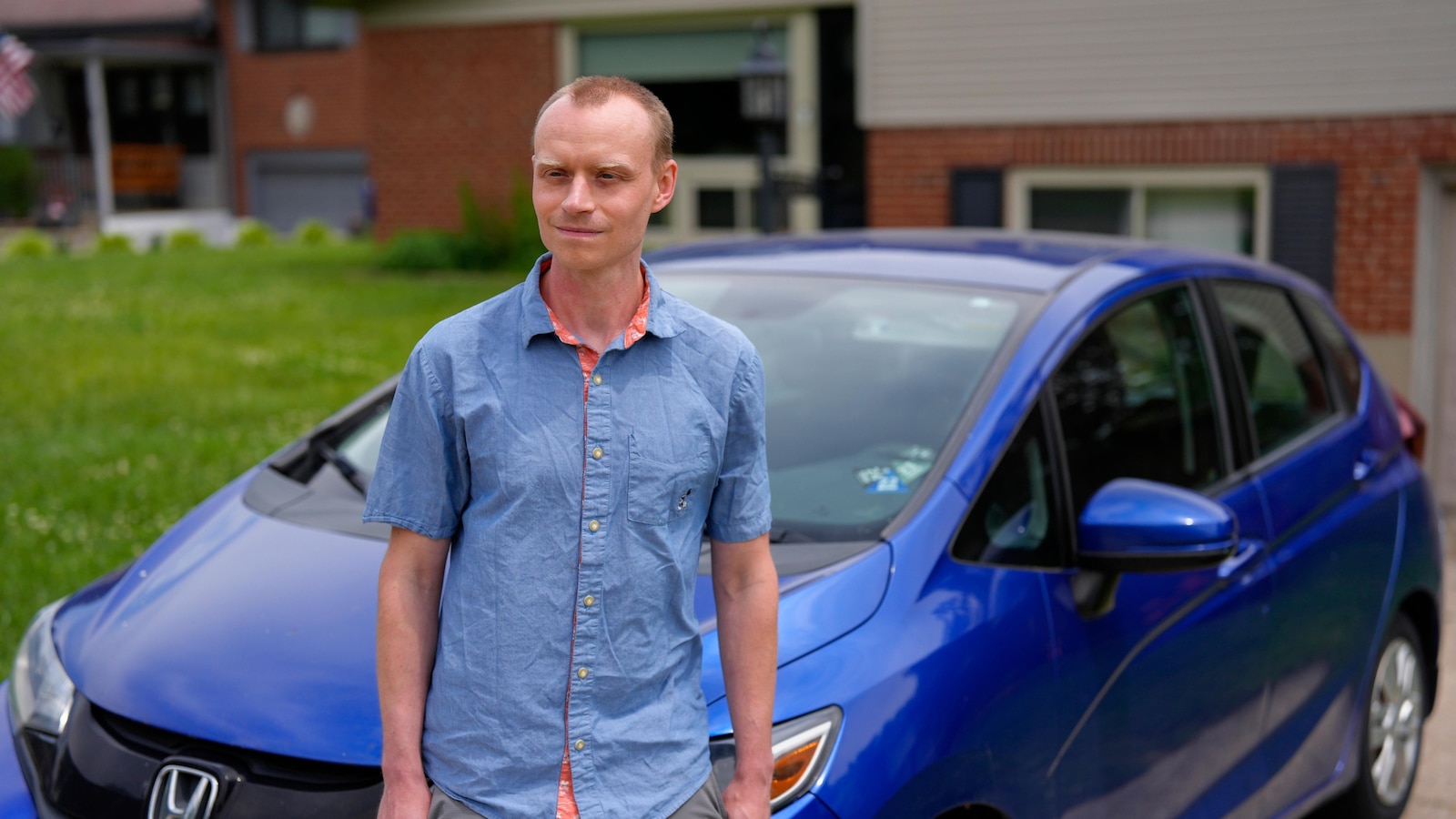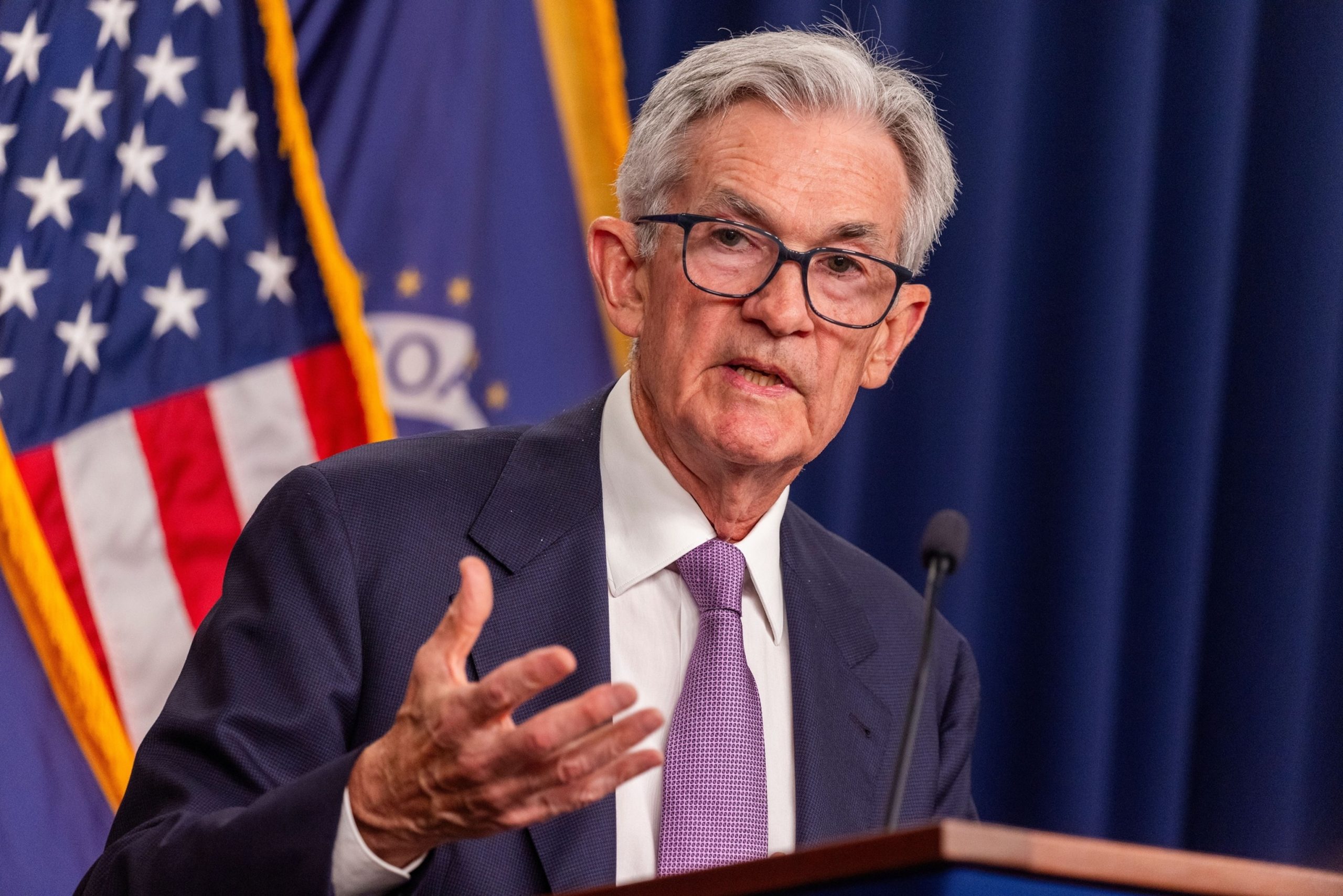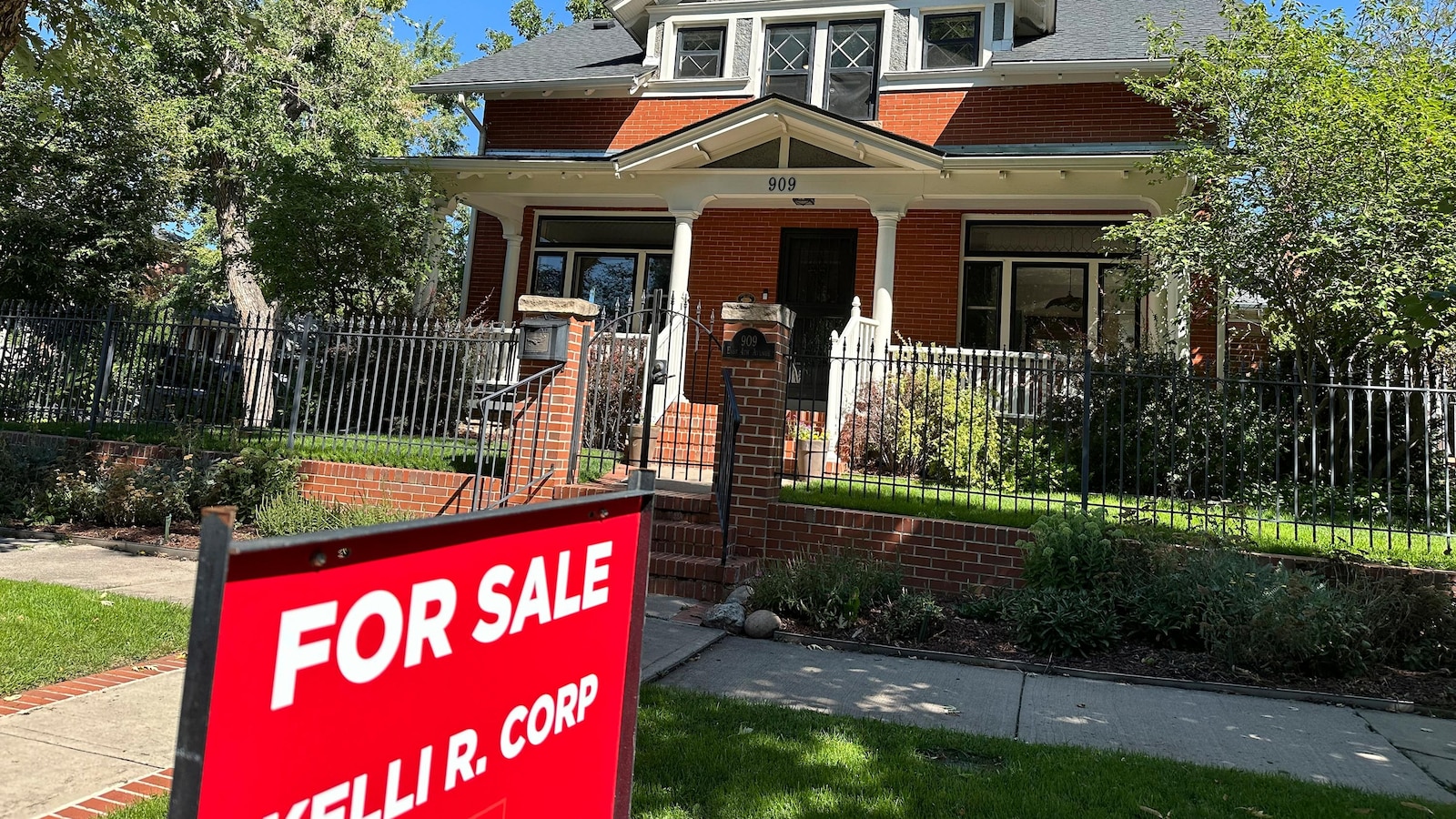
WASHINGTON — Many Americans still aren’t sold on going electric for their next car purchase. High prices and a lack of easy-to-find charging stations are major sticking points, a new poll shows.
About 4 in 10 U.S. adults say they would be at least somewhat likely to buy an EV the next time they buy a car, according to the poll by The Associated Press-NORC Center for Public Affairs Research and the Energy Policy Institute at the University of Chicago, while 46% say they are not too likely or not at all likely to purchase one.
The poll results, which echo an AP-NORC poll from last year, show that President Joe Biden’s election-year plan to dramatically raise EV sales is running into resistance from American drivers. Only 13% of U.S. adults say they or someone in their household owns or leases a gas-hybrid car, and just 9% own or lease an electric vehicle.
Caleb Jud of Cincinnati said he’s considering an EV, but may end up with a plug-in hybrid — if he goes electric. While Cincinnati winters aren’t extremely cold, “the thought of getting stuck in the driveway with an EV that won’t run is worrisome, and I know it wouldn’t be an issue with a plug-in hybrid,″ he said. Freezing temperatures can slow chemical reactions in EV batteries, depleting power and reducing driving range.
A new rule from the Environmental Protection Agency requires that about 56% of all new vehicle sales be electric by 2032, along with at least 13% plug-in hybrids or other partially electric cars. Auto companies are investing billions in factories and battery technology in an effort to speed up the switch to EVs to cut pollution, fight climate change — and meet the deadline.
EVs are a key part of Biden’s climate agenda. Republicans led by presumptive nominee Donald Trump are turning it into a campaign issue.
Younger people are more open to eventually purchasing an EV than older adults. More than half of those under 45 say they are at least “somewhat” likely to consider an EV purchase. About 32% of those over 45 are somewhat likely to buy an EV, the poll shows.
But only 21% of U.S. adults say they are “very” or “extremely” likely to buy an EV for their next car, according to the poll, and 21% call it somewhat likely. Worries about cost are widespread, as are other practical concerns.
Range anxiety – the idea that EVs cannot go far enough on a single charge and may leave a driver stranded — continues to be a major reason why many Americans do not purchase electric vehicles.
About half of U.S. adults cite worries about range as a major reason not to buy an EV. About 4 in 10 say a major strike against EVs is that they take too long to charge or they don’t know of any public charging stations nearby.
Concern about range is leading some to consider gas-engine hybrids, which allow driving even when the battery runs out. Jud, a 33-year-old operations specialist and political independent, said a hybrid “is more than enough for my about-town shopping, dropping my son off at school” and other uses.
With EV prices declining, cost would not be a factor, Jud said — a minority view among those polled. Nearly 6 in 10 adults cite cost as a major reason why they would not purchase an EV.
Price is a bigger concern among older adults.
The average price for a new EV was $52,314 in February, according to Kelley Blue Book. That’s down by 12.8% from a year earlier, but still higher than the average price for all new vehicles of $47,244, the report said.
Jose Valdez of San Antonio owns three EVs, including a new Mustang Mach-E. With a tax credit and other incentives, the sleek new car cost about $49,000, Valdez said. He thinks it’s well worth the money.
“People think they cost an arm and a leg, but once they experience (driving) an EV, they’ll have a different mindset,” said Valdez, a retired state maintenance worker.
The 45-year-old Republican said he does not believe in climate change. “I care more about saving green” dollars, he said, adding that he loves the EV’s quiet ride and the fact he doesn’t have to pay for gas or maintenance. EVs have fewer parts than gas-powered cars and generally cost less to maintain. Valdez installed his home charger himself for less than $700 and uses it for all three family cars, the Mustang and two older Ford hybrids.
With a recently purchased converter, he can also charge at a nearby Tesla supercharger station, Valdez said.
About half of those who say they live in rural areas cite lack of charging infrastructure as a major factor in not buying an EV, compared with 4 in 10 of those living in urban communities.
Daphne Boyd, of Ocala, Florida, has no interest in owning an EV. There are few public chargers near her rural home “and EVs don’t make any environmental sense,″ she said, citing precious metals that must be mined to make batteries, including in some countries that rely on child labor or other unsafe conditions. She also worries that heavy EV batteries increase wear-and-tear on tires and make the cars less efficient. Experts say extra battery weight can wear on tires but say proper maintenance and careful driving can extend tire life.
Boyd, a 54-year-old Republican and self-described farm wife, said EVs may eventually make economic and environmental sense, but “they’re not where they need to be” to convince her to buy one now or in the immediate future.
Ruth Mitchell, a novelist from Eureka Springs, Arkansas, loves her EV. “It’s wonderful — quiet, great pickup, cheap to drive. I rave about it on Facebook,″ she said.
Mitchell, a 70-year-old Democrat, charges her Chevy Volt hybrid at home but says there are several public chargers near her house. She’s not looking for a new car, Mitchell said, but when she does it will be electric: “I won’t drive anything else.”
___
The AP-NORC poll of 6,265 adults was conducted March 26 to April 10, 2024 using a combined sample of interviews from NORC’s probability-based AmeriSpeak Panel, which is designed to be representative of the U.S. population, and interviews from opt-in online panels. The margin of sampling error for all respondents is plus or minus 1.7 percentage points. The AmeriSpeak panel is recruited randomly using address-based sampling methods, and respondents later were interviewed online or by phone.
A recent AP-NORC/EPIC poll has revealed that a significant number of Americans are still hesitant to fully embrace electric vehicles (EVs), despite President Biden’s advocacy for their widespread adoption. The poll, conducted in partnership with the Associated Press-NORC Center for Public Affairs Research and the Energy Policy Institute at the University of Chicago, sheds light on the challenges facing the EV market in the United States.
According to the poll, only 30% of Americans say they are likely to buy an EV the next time they purchase a vehicle. This reluctance is primarily driven by concerns about the cost of EVs, as well as worries about the availability of charging infrastructure and range anxiety. Additionally, many Americans still have reservations about the performance and reliability of EVs compared to traditional gasoline-powered vehicles.
President Biden has made promoting EVs a key part of his administration’s agenda, with a goal of achieving net-zero emissions by 2050. In his recent infrastructure plan, Biden proposed investing $174 billion in EV incentives, including tax credits for consumers and funding for charging infrastructure. Despite these efforts, it appears that convincing Americans to make the switch to EVs will not be an easy task.
One of the main barriers to EV adoption is the perceived high cost of electric vehicles. While EV prices have been steadily decreasing in recent years, they still tend to be more expensive than their gasoline-powered counterparts. However, many experts argue that the total cost of ownership for EVs is actually lower due to savings on fuel and maintenance. Educating consumers about these long-term cost benefits could help alleviate concerns about affordability.
Another major concern among Americans is the availability of charging infrastructure. While the number of charging stations has been increasing across the country, there are still significant gaps in rural and low-income areas. Addressing these disparities will be crucial in encouraging more Americans to make the switch to EVs.
Range anxiety, or the fear of running out of battery power while driving, is also a significant factor holding back EV adoption. Many Americans worry about being stranded without a charging station nearby, especially on long road trips. Improving battery technology and expanding fast-charging networks can help alleviate these fears and increase confidence in EVs.
Despite these challenges, there is growing momentum behind electric vehicles in the United States. Major automakers like Ford, General Motors, and Tesla are ramping up production of EVs and introducing new models with longer ranges and faster charging capabilities. Additionally, states like California are implementing ambitious targets for phasing out gasoline-powered vehicles in favor of zero-emission alternatives.
As the Biden administration continues to push for greater adoption of electric vehicles, addressing consumer concerns and improving infrastructure will be key to achieving widespread acceptance. By investing in incentives, expanding charging networks, and promoting the benefits of EVs, policymakers can help pave the way for a cleaner and more sustainable transportation future.


